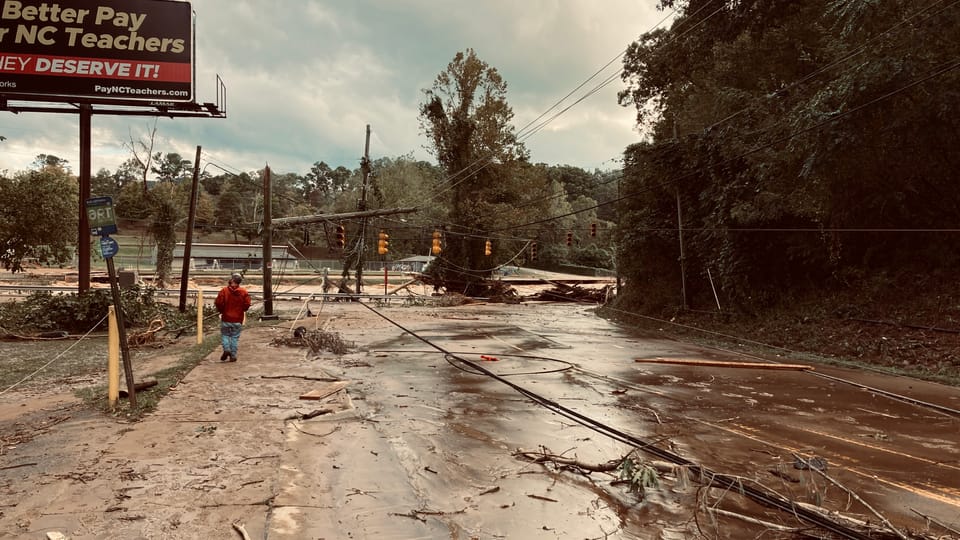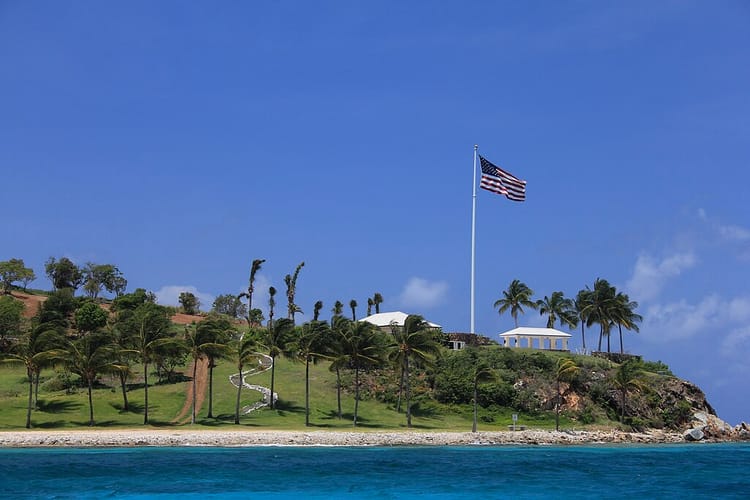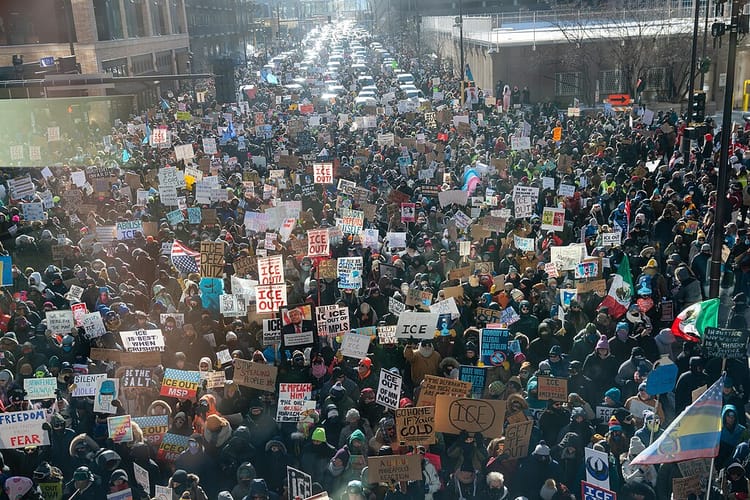Conspiracies Thrive in a Crisis

Last month during Climate Week in New York, Jennie King, the head of climate research and policy for the Institute for Strategic Dialogue and a co-founder of the coalition Climate Action Against Disinformation (CAAD) said something on a panel that drew an audible gasp from those in the room. "I want to talk about a concerning trend I've seen. A lot of people working on climate assume that as more people have direct experience with extreme weather events they will naturally be more supportive of climate policy," she said. "But that's not what the evidence shows. These are times when people are afraid and desperate, when they might tend to isolate...and those are the conditions in which conspiracy theories thrive."
It reminded me of what happened in Oregon after the wildfires there in 2020, when people with guns deputized themselves and set up road blocks to stop those trying to evacuate– they were trying to catch the arsonists that people on Facebook were telling them had started the fires. It also reminded me of what my Hot Take co-host Mary Annaïse Heglar talked about on an early episode: the aftermath of Hurricane Katrina and how it had spawned terrifying squads of white supremacist vigilantes who were "keeping the peace" in New Orleans after the storm. And of the story Zoya Tierstein did for Grist last year about how the Oath Keepers were mobilizing to become little local FEMAs, seeing extreme weather events as a prime moment to move in, seize control, and find recruits. Just a few days later, we saw it all play out in real time with Hurricane Helene.
I first spotted it on TikTok, where videos went viral claiming that the hurricane was the result of "geoengineering," that it was a government plot to kill off voters in red states (which would make liberal stronghold Asheville, North Carolina a weird target, but never let facts get in the way of a theory), that FEMA was going to cap aid at $750 a person (that's just what's available for emergency aid), or that, even more nonsensically, it was a Department of Defense plot to destroy a highly prized quartz mine...that the agency had just invested tens of millions of dollars into.
On my flight home from New York, I saw it in real life as the stewardess and the passenger across the aisle from me casually traded conspiracies they'd picked up on Facebook. "I heard it was the Department of Defense. Because they do want that mine," one said, knowingly.
"I mean, maybe," the other said. "But honestly, I just think it's a genocide." None of it made any sense, but that's the part that so many folks forget: it doesn't have to. All a conspiracy has to do is the thing that scientists and facts and figures cannot: tap into the fear and desperation people are feeling and give them a target to hurl it at. It has to make people feel better, less alone. Does knowing the truth about climate change do that? No it does not. Especially when people find out that there is no quick fix. The problem with that is not that coastal elites think conspiracies are dumb, it's that people might be resistant to do what's necessary to protect themselves—transition to new energy forms in the long term, prepare for climate disasters and trust government agencies like FEMA and the National Hurricane Center in the near term.
Some folks in the climate space have argued that corporations are a worthy target for those feelings. I don't disagree—obviously I spend a not-insignificant amount of time digging into and chronicling the misdeeds of companies—but I also think it's a bit of a cop out and it allows many in the climate movement to escape an uncomfortable truth about the way race and class intersect with discussions of how to address the climate crisis. In much the same way that Martin Luther King famously described nice white liberals as being a bigger problem than outright racists, on climate sometimes it's the moderate pragmatists, or the progressives with a justice blind spot, who are as much or more of a problem than the oil CEOs. We know what the oil executives will do, we know what they want, we know what they are trying to do and their attempts to pretend otherwise are so hollow as to be laughable. More dangerous are the wealthy environmentalists who also happen to be market zealots that believe so fervently that corporations will behave rationally and ethically that they give them everything they need to behave like murderous robots; the true believers who espouse "moderation" in the face of disaster, who lecture that "now is not the time" to talk about climate because there's always a pandemic or an election that's more important; who insist on a snail's pace despite the fact that we are 50 years behind schedule; who think it is reasonable and pragmatic to put fossil fuel CEOs in charge of the global response on climate; who get so caught up in what's politically feasible that they forget the basic laws of physics.
For decades, fossil fuel companies gaslit the public into thinking climate change was no big deal. They no longer need to try so hard—aided by "moderate" politicians and tech CEOs, they've lulled enough rich white liberals into thinking that replacing their cars with EVs and supporting policies and technologies that slightly reduce emissions while massively extending the lifespan of the fossil fuel industry will be enough; meanwhile the rest of the global population has been left to devastation, destruction and conspiracy theories about puppetmasters targeting their vote...clinging on to the idea that their voices, their lives still matter, even if just to those eager to silence them.
Sorry, things got a bit dark there. All is not lost. But it is important to sit with the truth that no one is coming to save us; we must not only save ourselves, but save each other. I've said it before and I'll say it again, the path forward lies not so much in this candidate over that one, this technology over that one, this ideology over that one, but in community building. The only medicine or inoculation for conspiracy theories is a good friend, family member, or neighbor—or ten—with the time and patience to disabuse you of them; the hallmark of every truly effective policy or tech solution is community buy-in, earned by relationship-building and equitable treatment; the only way to hold the powerful to account is to hit the streets, en masse, arm in arm; and the only way any of us will survive climate change is if we can truly rely on each other.
Climate Must-Reads
Speaking of community! Everything is fucking terrible but I'm so proud of our little Drilled team for continuing to fight the good fight and having each other's backs along the way. In the past week we put out:
- Royce Kurmelov's deep dive into how fossil fuel companies are repositioning old oil fields as carbon capture projects to get out of decommissioning costs in Australia
- Fernando Silva and Danielle Mackey's incredible piece on the ongoing criminalization of land defenders in Honduras (and the role U.S. companies play in it), in English and Spanish thanks to a partnership with Contracorriente in Honduras
- Molly Taft's absolute banger of an update on fossil fuel funding of university research, how it warps public policy, and what people are trying to do about it.
- A wide-ranging podcast conversation with Genevieve Guenther, author of The Language of Climate Politics on the various rhetorical tricks used to block progress on climate.
Other must-reads/listens:
- [Op-Ed] "Challenging the neutrality myth in climate science and activism," by Christel van Eck, Lydia Messling and Katharine Hayhoe in the journal Nature. There is—yes, in the year of our Lord 2024—a debate raging in the sciences at the moment about whether scientists can be activists. These three have something to say about that!
- "Oregon county sues major gas provider for allegedly sewing climate doubt," by Dharna Noor for The Guardian. Really interesting development in the climate litigation space (if you're saying to yourself "aren't there already a bunch of cases like this?" yes, but not filed against utilities, that's the new and intriguing bit).
- [Podcast] Into the Dirt, by Tortoise Media – I just started listening so no spoilers, but this (true!) story of a corporate spy sent in to infiltrate an environmental group only to decide he is on their side is delightful.
- [Newsletter] How to Think About Politics Without Wanting to Kill Yourself, by Hamilton Nolan. Quote that made me want to read it (h/t Phil Newell, who dropped this into the "disinfo disruptor" channel in the Covering Climate Now Slack!): "If Kamala Harris, the coward in this particular presidential race, is too scared to use her platform to boldly lead America to a sustainable climate future, it is an indication that all of us who understand the urgency of this issue must continue to educate and persuade and organize the people of this country until the coward feels safe standing in the correct place."





